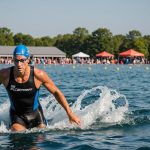Overview of Muscle Recovery for Combat Sports Athletes
Muscle recovery is paramount for athletes engaged in combat sports. It ensures that they can perform at their best and reduce the risk of injury. For competitors in the UK and beyond, understanding the unique aspects of combat sports nutrition is essential to effective recovery. UK athlete recovery often involves addressing multiple factors that can influence how quickly and completely muscles heal after rigorous training or competitions.
Factors affecting recovery include the intensity and type of exercise, individual athletic conditioning, and overall health. In combat sports, where training can be particularly strenuous, athletes must be attentive to their body’s cues and recovery needs. A balanced approach to nutrition becomes pivotal.
In the same genre : Mastering defense: how biomechanics transforms training for uk fighters
Combat sports athletes require specific nutritional needs during recovery. Protein plays a critical role in muscle repair, while carbohydrates help replenish glycogen stores for continued energy. Fats, meanwhile, should be included to support overall body function without compromising athletic performance.
Incorporating a diet tailored to these recovery needs not only improves performance but also prepares athletes for future challenges, enabling them to progressively enhance their skill and stamina. Thus, prioritising effective recovery strategies is key to sustaining long-term success in combat sports.
Additional reading : Unleashing your inner champion: the complete uk boxer”s handbook to speed bag mastery
Macronutrients Essential for Recovery
Protein serves as the cornerstone of muscle repair and growth. In combat sports, where muscle strain is a frequent occurrence, the role of protein cannot be overstated. It’s essential for athletes to meet their protein needs to promote recovery and foster adaptation. Consuming high-quality protein sources like lean meats, legumes, and dairy products offers both the amino acids and beneficial nutrients needed for optimal repair and muscle growth.
Equally important are carbohydrates, which replenish glycogen stores depleted during training and competition. Adequate carbohydrate intake ensures that athletes maintain sustained energy levels and enhances muscle recovery times. It is recommended that athletes consume whole grains, fruits, and vegetables that provide both essential nutrients and the necessary carbohydrates for energy facilitation.
While often overlooked, fats should not be excluded from recovery diets; they play a supportive role in recovery and inflammation reduction. Incorporating healthy fats, such as those found in avocados, nuts, and olive oil, ensures athletes receive a balanced diet conducive to overall recovery and performance.
Achieving the correct macronutrient ratios tailored to individual needs is crucial, as it supports recovery while preparing athletes for future training and competitions.
Micronutrients and Their Impact on Recovery
Understanding the importance of micronutrients in recovery is crucial for combat sports athletes. Vitamins for recovery, such as vitamin C and vitamin D, play significant roles in healing processes. Vitamin C is essential for collagen synthesis, helping repair muscle tissues, while vitamin D supports calcium absorption, vital for bone strength and muscle function. Adequate intake of these vitamins ensures a more effective recovery.
Minerals for athletes such as magnesium and potassium are equally important. Magnesium assists in muscle relaxation and energy production, reducing cramps and fatigue. Potassium helps maintain electrolyte balance, essential for preventing dehydration and muscle cramps. Including mineral-rich foods, like leafy vegetables and bananas, can greatly enhance recovery routines.
Supplements for muscle repair, like omega-3 fatty acids and certain amino acids, can further support recovery. Omega-3s have anti-inflammatory properties that reduce muscle soreness, while amino acids like glutamine repair muscle damage more efficiently. Consult with a healthcare professional to determine the most suitable supplements for individual needs. Integrating a balanced mix of micronutrients in the diet propels athletes towards optimal performance and recovery.
Timing and Frequency of Nutrient Intake
Timing and frequency in nutrient intake can substantially impact muscle recovery for combat sports athletes. A critical element of this regimen is knowing when to consume protein and carbohydrates post-training. Ideally, athletes should ingest protein and carbohydrates within a 30-minute window after exercise. This practice maximises glycogen restoration and stimulates muscle synthesis, allowing for quicker recovery and enhanced performance.
Regularity in meal timing also supports optimal recovery. Maintaining a consistent nutritional frequency prevents energy dips and sustains nutrient levels, crucial for muscle repair. Athletes might consider dividing their daily intake into smaller, regular meals, which aids in maintaining metabolic rates and continuous nutrient absorption.
Attention to both pre- and post-fight nutrition further optimises recovery. Before a fight, meals rich in easily digestible carbohydrates and moderate in protein are recommended to boost energy levels. Post-fight nutrition should focus on replenishing nutrients lost during competition, with an emphasis on protein for tissue repair and carbohydrates for energy recovery.
By carefully planning meal timing and implementing strategic nutritional frequency, combat sports athletes can significantly enhance their recovery processes and build resilience.
Hydration Strategies for Enhanced Recovery
Hydration plays a critical role in muscle recovery, particularly for combat sports athletes. Staying properly hydrated supports overall physiological function and significantly impacts recovery efficiency. An athlete’s performance can suffer greatly with even mild dehydration, affecting both physical and mental capabilities.
To optimise recovery, combat sports athletes should consider adopting strategic hydration methods. It is crucial to drink fluids consistently throughout the day, rather than waiting until they feel thirsty. This proactive approach helps maintain electrolyte balance and supports ongoing recovery. Incorporating drinks with electrolytes, such as sports drinks, can enhance rehydration by replenishing essential minerals lost through sweat.
Combat sports athletes are urged to be mindful of dehydration symptoms. Signs such as dry mouth, fatigue, dizziness, or darkened urine are strong indicators of inadequate hydration. To avoid these, athletes should monitor their fluid intake, both during and after training. Drinking water regularly controls body temperature and aids in the transportation of nutrients necessary for recovery.
An effective hydration strategy includes considering the individual’s sweat rate, training intensity, and environmental conditions. By prioritising regular hydration, combat sports athletes can sustain better performance, reduce recovery time, and fend off potential injuries related to dehydration.
Specific Foods That Enhance Recovery
Combat sports athletes need to embrace recovery foods that accelerate healing and performance. Certain foods offer substantial benefits due to their high nutritional value. Nutrient-dense options like lean proteins, whole grains, and leafy greens are vital in muscle repair and energy replenishment. These foods contain essential nutrients and minerals conducive to recovery.
Incorporating superfoods for athletes can significantly aid recovery. Berries and cherries, rich in antioxidants, combat inflammation which helps reduce muscle soreness. Turmeric, known for its curcumin content, actively fights inflammation too. Similarly, fatty fish such as salmon are excellent choices, thanks to their omega-3 fatty acids which lower inflammation and bolster recovery.
To integrate these into a diet, consider crafting meals that focus on these impactful foods. Example meals might include a salmon and quinoa bowl with spinach and cherry tomatoes, or a turmeric chicken wrap with avocado and hummus.
By leveraging recovery-boosting superfoods, athletes can enhance their recovery strategies, simultaneously supporting muscle repair and reducing inflammation. Focusing on these high-impact foods can set the groundwork for improved performance and sustained fitness in combat sports, aligning nutrition with athletic goals for optimal recovery.
Case Studies and Expert Opinions
Combat sports athletes can gain valuable insights from real-world athlete recovery examples. For instance, some athletes have adopted customised nutrition plans post-training tailored to their individual needs, demonstrating marked improvements in muscle recovery and performance. These success stories illustrate the power of strategic nutrition.
Renowned nutrition expert insights have highlighted the importance of micronutrient balance, advocating for a diet inclusive of essential vitamins and minerals like magnesium and vitamin C for effective recovery. Experts agree that integrating specific nutrient-dense foods can significantly enhance recuperation post strenuous activities.
The varying approaches to recovery in combat sports are well-documented. Some focus on protein-rich diets, emphasising lean meats and dairy for muscle repair, whereas others prioritise carbohydrates to restore energy levels swiftly.
Comparison of different strategies shows that a hybrid approach, combining protein, fats, and carbs, typically yields optimal results. Recovery success stories also underline how minor adjustments, such as altering meal timing or incorporating hydrating fluids, can have profound effects on recovery rates.
The consensus among professionals is clear: leveraging tailored nutritional strategies catapults athlete recovery, enabling them to achieve and sustain peak performance in the demanding realm of combat sports.
Practical Tips for Implementing Nutrition Strategies
Combat sports athletes can greatly benefit from integrating actionable recovery tips into their routines. Developing a personalised recovery nutrition plan ensures that dietary strategies meet specific athletic demands and support efficient recuperation. Here are key steps to consider:
-
Assess individual needs: Determine macronutrient and micronutrient requirements based on training intensity and personal fitness goals. Consult with a sports nutritionist if possible.
-
Strategic meal planning: Plan meals around workout and recovery times to maximise nutrient intake. Consider the integration of meal prep for athletes, which involves cooking and storing portions ahead of time, reducing stress and time constraints.
-
Monitor nutrition intake: Utilise resources such as food tracking apps to keep an eye on the balance between proteins, carbohydrates, and fats. These tools can also help track vitamins, minerals, and overall calorie consumption.
Focus on diverse nutrient-dense foods to meet dietary recovery needs while maintaining flexibility for changes based on performance feedback. Consistency and adaptability are essential; adapting the plan as training demands shift is crucial for optimal recovery.
By employing these practical tips, combat sports athletes can enhance their nutrition strategies, paving the way for improved performance and sustained recovery.











